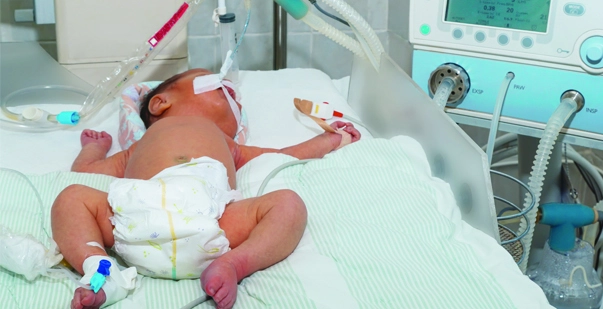Whether you are a healthcare professional, a parent or a school teacher, you must stay prepared for medical emergencies. PALS (Pediatric Advanced Life Support) training protocols were created in 1983 in response to the demand for resuscitation guidelines and instructions to help medical professionals treat children. PALS has given them the expertise and training to respond to and treat critically sick children and infants that suffer a cardiac arrest or other emergencies, whether in or out of the hospital.
What is Pediatric Advanced Life Support?
PALS is a specialized training program for emergency treatment for newborns and young children. PALS course includes Basic and Advanced Life Support training, both necessities for a pediatric expert. The entire program is designed to meet young children’s and newborns’ unique needs. Pediatric advanced life support age range for kids is up to 18 years.
Saving a life is the aim of pediatric advanced life support (PALS). Timely assistance and intervention could mean the difference between life and death for a child or infant suffering from illness or injury. These responses are made to be easy enough to memorize and recall in stressful situations. PALS guidelines were created after thorough clinical research, a detailed analysis of the already used protocols, and patient case studies.
What does it mean to be PALS certified?
The PALS certification program uses learning stations and simulated clinical scenarios to actively push students to learn and practice life-saving techniques independently, in teams, and as team leaders. This certification guarantees medical professionals the knowledge and abilities to handle pediatric emergencies. It gives its patients the best care possible in a timely and efficient manner.
You must complete the PALS course to receive their PALS certification. There are two methods to achieve this:
1. PALS online course certification that is approved and recognized
2. Enrolling in PALS classes at medical colleges or hospitals
Pros of PALS Certification Online
Online PALS recertification and fresh certification is an excellent alternative to the classroom-based format because it offers several pros, as listed below:
- Learn at your speed
You will find the flexibility required to fit this course into your hectic schedule. Your training can be started and stopped at any moment and then resumed whenever you have the time. You can also take time and learn quickly to ensure the material is fully retained.
- No repeats
Online pediatric advanced life support classes significantly lessen the repetition and boredom that can be present in an instructor-led session. Online courses spare you the time-consuming task of learning topics you already know. In fact, you can sign up for the exam and start taking it immediately if you don’t need any refresher courses.
- Flexible
An online course is quite simple to accommodate into your schedule. You can finish your online PALS course whenever it’s convenient for you, at your speed, from the time you sign up until you pass the exam.
- Time-saving
Online PALS certification and recertification courses can be finished in a few hours. You don’t have to work on your PALS certification for several days. Instead, organize your time as you like and complete your PALS course or recertification from the convenience of your home.
- Saves money
The cost of an online PALS certification course will vary across all websites. However, practically all online courses will be less expensive than in-person equivalents.
- Complete your course from anywhere
The ability to complete online PALS courses from any location is another aspect that adds to their practical versatility. You only need a computer, tablet, or smartphone with an internet connection. There are no geographical limitations.
- Less anxiety about the course
There is substantially less stress connected with online PALS recertification courses because of the simple enrollment process, the freedom to tailor your training, and the lack of scheduling constraints. Enjoy the convenience of a PALS recertification course online from your home.
Importance of PALS Certification in Medical Emergencies
- Higher pediatric patient survival rates
PALS training gives medical professionals the unique information and abilities to react to pediatric emergencies. This includes performing pediatric-specific CPR, managing the airway, and dispensing the proper drugs. According to studies, pediatric patients’ chances of survival in life-threatening situations are significantly increased by the timely and accurate administration of PALS protocols.
- Enhanced results and decreased morbidity
PALS emphasizes early diagnosis and treatment of illnesses that frequently affect children, such as respiratory distress, shock, and cardiac arrest. This proactive strategy can result in improved outcomes and a lower chance of long-term issues or disability. Using evidence-based techniques, PALS-trained professionals can reduce the risk of complications and secondary injuries during resuscitation efforts.
- Enhanced results and decreased morbidity
PALS teaches early diagnosis and treatment of diseases that affect children frequently, such as shock, respiratory distress, and cardiac arrest. This improves patient outcomes and a lower chance of long-term issues or disability. Using evidence-based techniques, PALS-trained professionals can reduce the risk of complications and secondary injuries during resuscitation efforts.
- Greater assurance and readiness among healthcare professionals
The PALS certification gives medical personnel assurance when handling pediatric situations. It guarantees they are competent and well-prepared to handle stressful situations involving children. PALS can significantly improve their ability to react appropriately.
- Standardization of emergency pediatric care
PALS adheres to approved and recognized standards and procedures. This standardization ensures that all PALS certified healthcare professionals follow the same protocols and guidelines. Pediatric advanced life support in nursing field is very important especially for RNs who handle pediatric emergencies.
Benefits of PALS Certification
- PALS Certification’s Professional Advantages
If you’re already working in a hospital, being PALS certified will help you find better opportunities. Your ability to work confidently in many environments may result from your PALS certification, which can give you more knowledge and skills.
- Benefits of PALS Certification for Individuals
If you have PALS certification, you can respond appropriately to medical situations involving children or infants. You’ll be able to look after children and newborns while being physically and emotionally prepared. Compared to adults, children frequently need different and quicker solutions. You will be better prepared to treat patients of all ages who require emergency care if you are a medical practitioner.
- Benefits of PALS Certification for the Community
With the PALS certification, you can care for the baby, child, and adolescent communities. It guarantees you are knowledgeable and comfortable enough to treat children and infants immediately. PALS-certified medical professionals enhance the standard of care in pediatric hospitals and clinics.
Conclusion
PALS is a necessary certification as it helps understand how to treat infants and children experiencing medical emergencies. Regardless of whether it is mandatory, anyone in the medical field who treats children should get PALS certified. This certification can advance your career as an emergency or in-facility responder.













